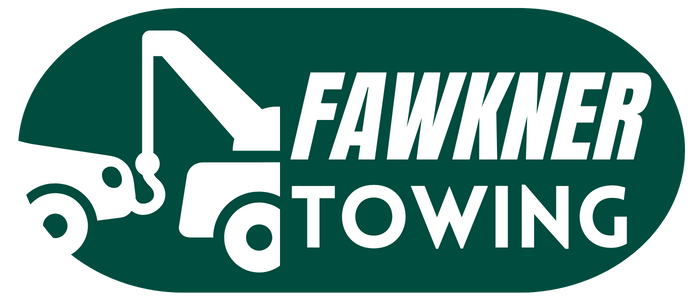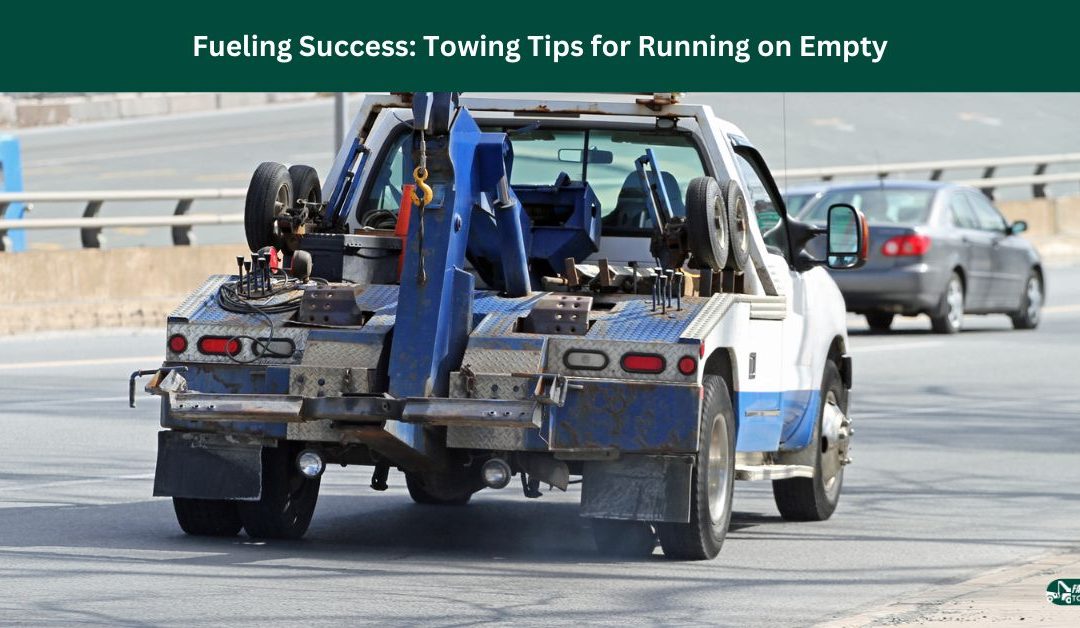Running out of fuel on the road can be frustrating and, in some cases, downright dangerous. For towing operators, assisting stranded drivers with empty gas tanks is a common task. However, with the right strategies, drivers can avoid getting stuck without fuel, and towing professionals can ensure they’re prepared to handle these situations safely and efficiently. This article explores the causes of fuel-related breakdowns, preventive tips for drivers, and best practices for towing operators responding to “out-of-fuel” calls.
Why Running Out of Fuel Happens
While modern vehicles often alert drivers with warnings and reminders as fuel gets low, several factors can still lead to running on empty:
Long-Distance Driving: Drivers on long road trips may overestimate the distance they can travel on a single tank, particularly in remote areas with few fuel stations.
Heavy Traffic: Sitting in heavy traffic or stop-and-go driving consumes more fuel than cruising, which can catch drivers by surprise.
Faulty Fuel Gauges: Although rare, a malfunctioning fuel gauge can lead to miscalculations in fuel availability.
Weather Conditions: Extreme cold or heat can affect fuel consumption. Cold weather requires more energy to keep the vehicle warm, and hot weather increases fuel evaporation, which can drain the tank faster than expected.
Understanding these factors helps drivers better anticipate their refueling needs and avoid finding themselves stranded.
Prevention Tips for Drivers
For drivers, preventing a fuel breakdown is simple with a bit of planning. Here are a few tips to ensure you’re not left waiting for a tow:
Refuel Early and Often: Avoid letting the tank drop below a quarter, especially when driving in unfamiliar or remote areas.
Track Your Mileage: For longer drives, knowing your average fuel mileage can help predict when you’ll need to stop. Most vehicles also display an estimated “miles remaining” figure, but it’s wise not to rely on this alone.
Check the Route for Fuel Stations: Plan refueling stops based on your route. Apps like Google Maps or fuel-station apps can show nearby fuel stations.
Drive Smoothly: Aggressive driving, including rapid acceleration and high speeds, increases fuel consumption. Smooth driving saves fuel and extends your driving range.
For those moments when running out of gas is unavoidable, being prepared with these precautions can minimize the inconvenience and wait time for roadside assistance.
Towing Tips for Handling Fuel-Related Assistance
For towing professionals, an “out-of-fuel” call might sound simple, but it still requires specific preparation to ensure both safety and efficiency. Here’s a breakdown of best practices:
- Offering Fuel Delivery Services
Many towing companies offer fuel delivery, bringing a few gallons of fuel directly to the driver to get them back on the road. By keeping a variety of fuel types in stock, including both gasoline and diesel, operators can meet a broader range of customer needs. It’s also crucial to ask the customer their vehicle’s fuel type during the call to avoid delays on arrival.
- Ensuring Safety and Visibility
Responding to an out-of-fuel call often involves stopping on busy roads or highways. Operators should prioritize safety by using hazard lights, reflective vests, and traffic cones to alert oncoming drivers. Placing the tow truck strategically can protect both the operator and the driver’s vehicle, especially when refueling on highways or other high-speed roads.
- Providing Additional Assistance if Needed
In some cases, running out of fuel may be coupled with other issues, such as a drained battery or engine troubles from trying to restart repeatedly. Towing professionals can provide a quick assessment and, if necessary, offer additional services, like jump-starting a dead battery or towing the vehicle to the nearest repair shop.
- Educating Drivers on Fuel Conservation
Operators can offer drivers a few tips on fuel conservation when they’re back on the road, such as avoiding heavy acceleration, which consumes more fuel. A quick reminder of preventive steps may help the driver avoid another empty tank incident in the future.
- Keeping Emergency Supplies on Hand
For towing companies, having a reliable stock of fuel, flashlights, and reflective signage on every truck can make a big difference. Some operators also keep small emergency fuel containers or siphon kits, enabling them to handle various situations that involve fuel-related breakdowns.
Real Stories of Running on Empty
To underscore the importance of being prepared, here are a couple of memorable stories from towing professionals who came to the rescue when drivers found themselves on empty.
The Desert Road Lifesaver
In a remote desert area, a driver found himself out of gas with no fuel stations for miles around. The towing company responded with a team that specializes in rural rescues. They not only brought fuel but also provided extra water, essential for the extreme heat, before guiding the driver to the nearest gas station. This situation highlights the importance of being prepared with fuel and essential supplies, especially in remote locations.
Rush-Hour Refuel
During peak rush hour in a major city, a driver ran out of fuel on a busy bridge, creating a significant traffic backup. The towing operator acted quickly, safely maneuvering through heavy traffic to reach the stranded driver. By delivering enough fuel to get the car to a nearby station, the operator helped alleviate a major traffic incident, showing how prompt and safe service can benefit both the driver and the flow of traffic.
Fuel-Efficient Driving Tips from Towing Experts
When dealing with fuel-related calls, tow professionals often become informal advisors on how to extend fuel range. Here are a few fuel-saving tips that towing experts frequently share:
Avoid Idling: Extended idling consumes more fuel than most drivers realize. Turning off the engine while waiting can conserve gas.
Reduce Speed on Highways: High speeds increase fuel consumption significantly. Sticking to the speed limit can save fuel and add extra miles to the tank.
Lighten the Load: Heavy loads require more fuel to transport. Removing unnecessary weight from the car can improve fuel efficiency.
Conclusion
Running on empty doesn’t have to spell disaster. By taking preventive measures, drivers can avoid finding themselves stranded without fuel. And when the unexpected does happen, towing professionals are there to deliver fuel, ensure safety, and get drivers back on the road. Whether it’s a quick fuel delivery or a full rescue in challenging conditions, the towing industry plays a critical role in keeping drivers moving, even when the gas gauge dips a little too low.
If you are in Merri Creek Trail, Reservoir VIC 3073, Australia, and looking for a tow truck service, below is the best way to visit us.
Fawkner Towing
18 Emma St, Fawkner VIC 3060
(03) 4050 4989


Recent Comments